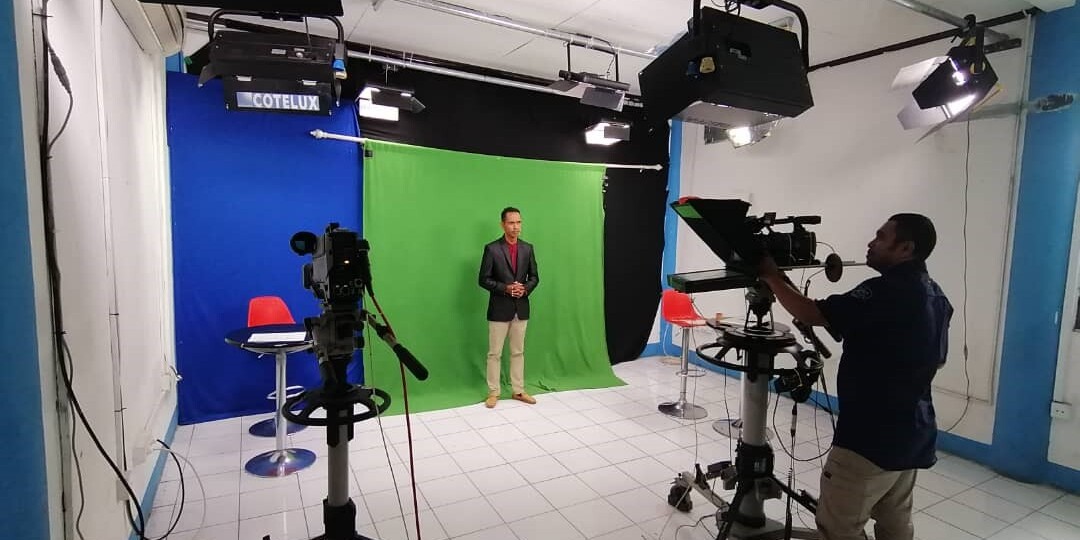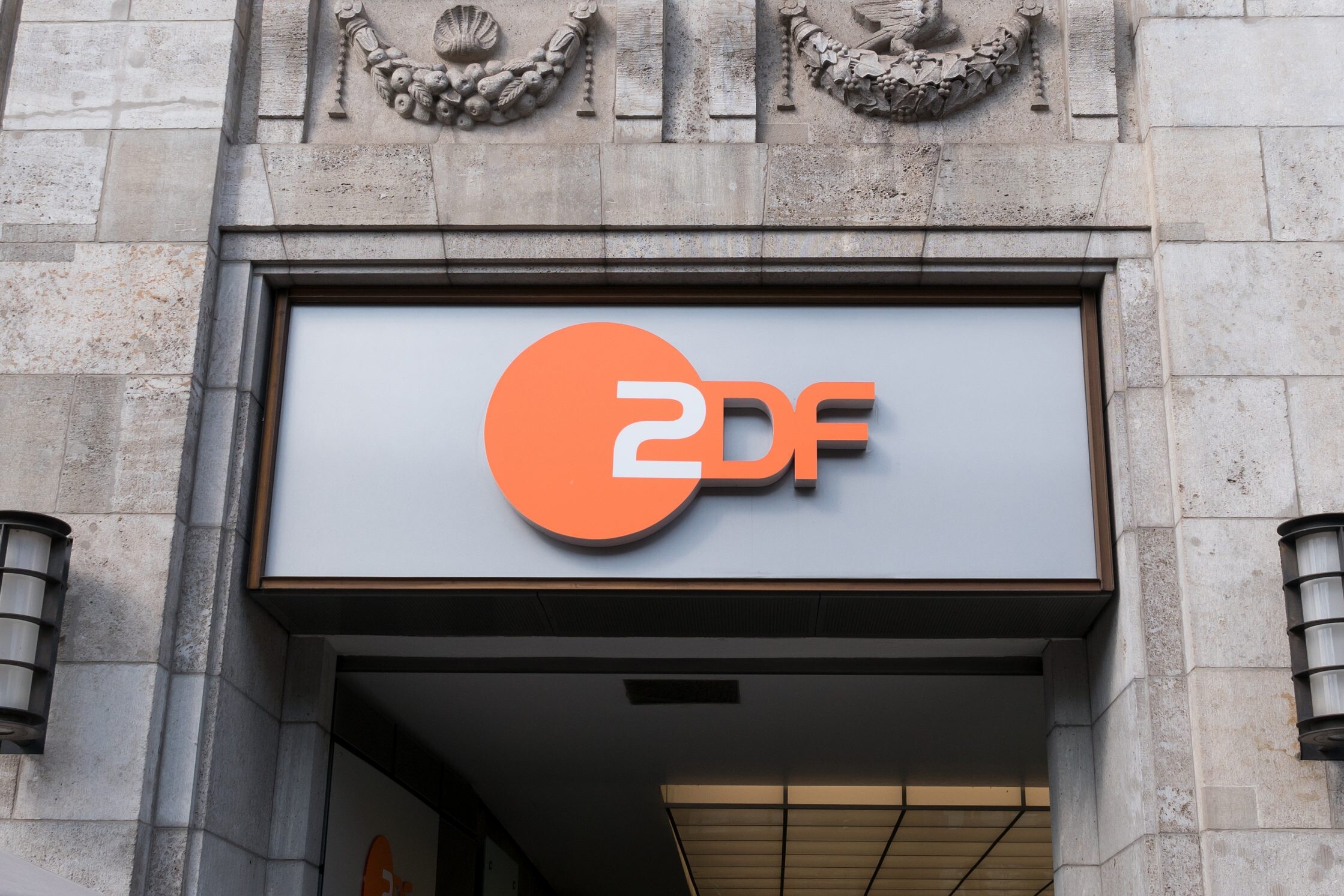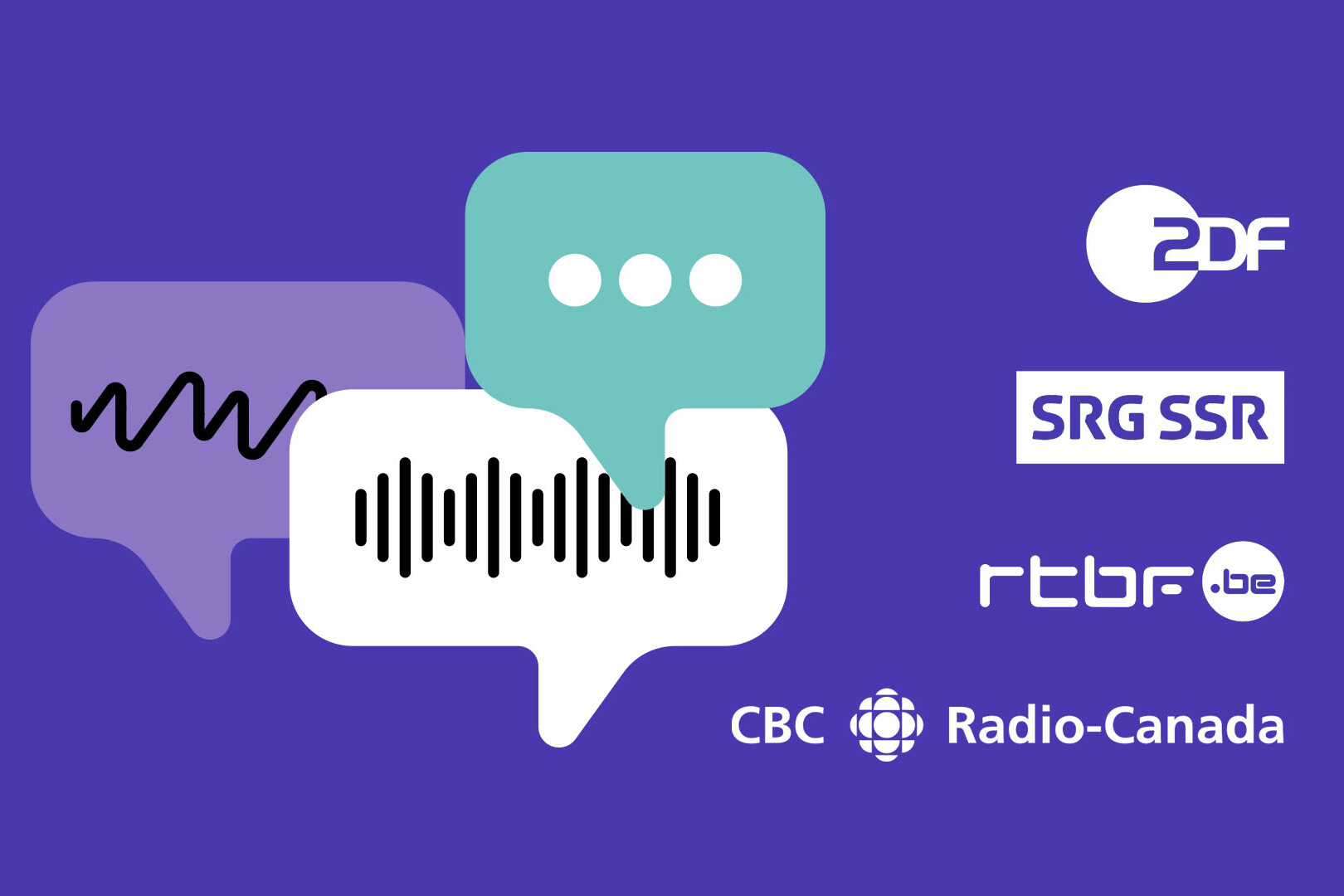INSIGHT
Public media in Europe: Cooperate to survive
16 May 2025
As European public service media confront new challenges and the need to transform, RTBF’s spokesperson Axelle Pollet explores how European PSM can navigate this pivotal time together and strengthen the values of PSM across the Union.

This Insight was originally written in French.
By Axelle Pollet, Spokesperson and Director of Communication and Public Affairs at RTBF
Across Europe, public service media are going through a period of major transformation. They are called upon to defend their role, funding and mission in an environment marked by political, economic and technological challenges.
In several countries, recent developments have raised questions about editorial independence. Elsewhere, in France, Switzerland, Italy, the Netherlands, Germany and Belgium, discussions about funding and remits are giving rise to sometimes sensitive negotiations, even though these medias’ audience remains solid and they have demonstrated the importance of their role for the public during recent crises.
Read more: As EMFA’s implementation grows closer, why concerns over its effectiveness remain
These debates are not new, but they take on particular significance in the context of the wider questioning of the role of public institutions. Criticism is being voiced about the cost, governance and relevance of public service broadcasting. Some argue that existing structures need to be ‘modernised’ or ‘rationalised’, with the risk of their legitimacy being undermined.
Yet, public media occupy a special place in the local media ecosystem. Their mission is to offer independent, reliable and pluralistic content that is accessible to all, reflecting the diversity of territories, ideas and cultures. This role, while evolving, remains fundamental in a media landscape marked by concentration, manipulation, fragmentation of audiences and polarisation of opinions. It also plays a role in stimulating the local creative ecosystem as an editorial and economic partner, as well as a stable, long-term partner for the local cultural and audiovisual sectors.
Latest Insights
The future of our media will largely depend on our collective ability to redefine public media’s mission in a shared way. This means guaranteeing their independence through sustainable funding mechanisms, statutory protection and explicit recognition of their contribution to democratic life.
To enable public media to invest in quality content, innovate and fully fulfil their mission, it is essential that they can rely on a stable and predictable framework. This stability is a necessary condition for committing to long-term investment, supporting creation and accompanying digital transitions. However, the fundamental indicator that remains is the trust placed in them by audiences, in all their diversity, because it is this trust that legitimises their action on behalf of the community that mandates them. The European Media Freedom Act (EMFA) is a reminder of the importance of guaranteeing editorial autonomy, transparency of funding and respect for pluralism, while reaffirming the central role of public media in a European democratic area.
Let’s never forget that beyond its mission to inform, public media plays a structuring role in democratic life. It contributes to the creation of a space for informed thought and diverse opinions, for the transmission of knowledge, for bringing to light talent from all horizons, and plays an active part in the cultural and economic dynamism of the regions. By supporting creativity, training professionals and promoting diversity, it generates societal and economic value that are often underestimated, but essential to the local fabric.
The challenge is therefore to build a strong alliance between all content creators, producers and publishers to preserve a dynamic local cultural ecosystem.
To provide a sustainable response, dialogue between citizens, politicians, media professionals and researchers is more vital than ever. It is less a question of defending a fixed model than of imagining together what a public service adapted to the challenges of tomorrow will look like.
RTBF: financial stakes and editorial independence

The case of RTBF illustrates this tension in an exemplary way. In the midst of digital transformation, with a desire to strengthen its ties with the public, RTBF is facing political proposals to restrict its scope of action, redefine its missions and reduce its resources. This is happening at a time when the need for a general-interest public broadcaster has never been more urgent.
The government of the Communauté Française, installed after the June 2024 elections, has frozen public funding at the 2025 level, doing away with the double indexation previously granted. The public broadcaster will have to reduce its budget by 12% between 2025 and 2028.
A programme of savings over several years (2025-2028) has been proposed and approved by the Board of Directors. Nearly 150 measures have been identified, including an analysis of impacts and benefits, risks, and key stages of implementation. There is no redundancy plan, but nearly 170 full-time equivalents (FTEs) will be leaving without being replaced, support services will be streamlined, sports rights and the entertainment content will be reduced, and new revenue streams will need to be identified.
This is a complex exercise that the teams will have to carry out to continue to inform and analyse the news, offer a cultural and entertaining offering, and maintain an active digital presence to attract the younger generations through its proprietary platforms.
A call for cooperation
From this perspective, cooperation between players becomes a condition of resilience. No public media can stand up to the power of global digital platforms alone. The challenge is therefore to build a strong alliance between all content creators, producers and publishers to preserve a dynamic local cultural ecosystem.
Considering greater collaboration between public media would make a lot of sense, as they share the same DNA and identical missions to engage all the audiences in their linguistic community.
In France, for example, this approach is embodied in the creation of LaFA (La Filière de l’Audiovisuel), which brings together France Télévisions, TF1, M6, the CNC and producers’ associations around shared production and broadcasting strategies.
This perspective also animates projects such as the Public Spaces Incubator (PSI), which aims to improve digital conversations and encourage citizen participation, and which brings together CBC/Radio Canada, RTBF, SRG SSR, ZDF, ABC and ARD, with an open-source approach.
In Belgium, collaboration between local players on their digital platforms would make it possible to pool technological resources and provide a range of services accessible to all, without competing unnecessarily. Considering greater collaboration between public media would make a lot of sense, as they share the same DNA and identical missions to engage all the audiences in their linguistic community.
Such cooperation, both pragmatic and visionary, would strengthen the impact of public media, reinforce their service mission and provide lasting support for the cultural and economic diversity of our territories.
About the author
Axelle Pollet is the Spokesperson and Director of Communication and Public Affairs at Radio-télévision belge de la Communauté française (RTBF).
Related Posts
30th April 2025
How German-speaking PSM are facing fundamental reform
Across both Austria and Germany, why is…
27th March 2025
Young European audience habits and what it means for public media
A new study explores the viewing habits…
6th March 2025
As EMFA implementation grows closer, why some concerns remain
As the EMFA is coming into effect in…
8th February 2023
Public broadcasters create “Public Spaces Incubator”
Four public broadcasters are partnering…






